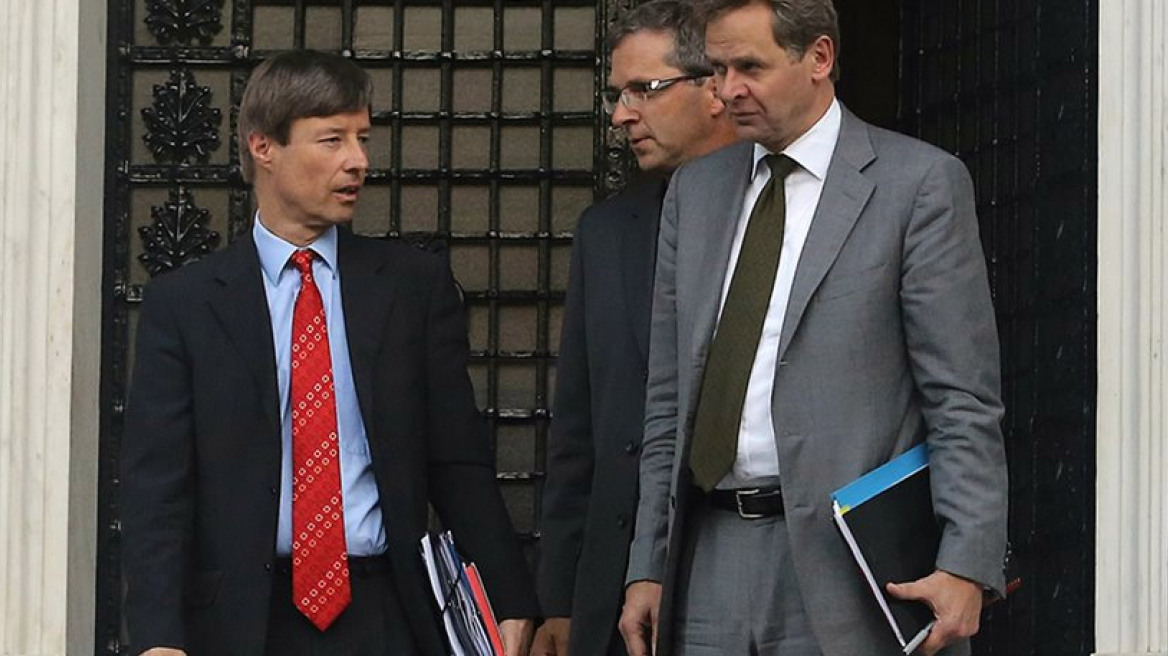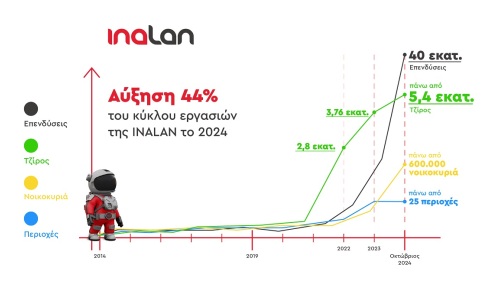
Greek government waiting for the Troika
Greek government waiting for the Troika
The Greek government is already thinking of the next stage of negotiations regarding debt sustainability, the financing gap and the fiscal issues of 2014-2016

The Greek government is waiting for the Troika that returns to Greece next week, and appears confident that this time the assessment will be completed to allow the Eurogroup of March give the green light for the disbursement of the pending tranches.
The government appears satisfied with the compromise reached. Troika called for fiscal measures in 2014 arguing that the primary surplus would not be viable since it does not come from permanent sources of revenue. The Greek government insisted that since it achieved a primary surplus a year earlier it will meet its next goal. According to the compromise, the Greek government will not take measures at this stage, but if there is a deviation in course it will and also reserves the right to return the surplus by benefits to society.
Another compromise came for the structural changes based on the OECD report. The Greek side is committed to accelerate reforms, however, the more difficult that will have political costs are moved for after the European elections. Upon completion of the assessment the government removes a major obstacle on the road to the European elections and the release of the tranches that will help the Greek economy.
The government is already thinking of the next stage of negotiations for debt sustainability, the financing gap and the fiscal issues of 2014-2016. Indications from Berlin and Brussels are not very encouraging. Under pressure from Eurosceptics and right-wing parties in Germany and the Nordic states Berlin does not look ready to offer a solution to Greece's debt before the European elections.
The statements of Dijsselbloem and Rehn are indicative of the intentions to transfer the negotiation for the summer and after another review by the Troika while the aggressive reports in the German press create a negative climate.
The government appears satisfied with the compromise reached. Troika called for fiscal measures in 2014 arguing that the primary surplus would not be viable since it does not come from permanent sources of revenue. The Greek government insisted that since it achieved a primary surplus a year earlier it will meet its next goal. According to the compromise, the Greek government will not take measures at this stage, but if there is a deviation in course it will and also reserves the right to return the surplus by benefits to society.
Another compromise came for the structural changes based on the OECD report. The Greek side is committed to accelerate reforms, however, the more difficult that will have political costs are moved for after the European elections. Upon completion of the assessment the government removes a major obstacle on the road to the European elections and the release of the tranches that will help the Greek economy.
The government is already thinking of the next stage of negotiations for debt sustainability, the financing gap and the fiscal issues of 2014-2016. Indications from Berlin and Brussels are not very encouraging. Under pressure from Eurosceptics and right-wing parties in Germany and the Nordic states Berlin does not look ready to offer a solution to Greece's debt before the European elections.
The statements of Dijsselbloem and Rehn are indicative of the intentions to transfer the negotiation for the summer and after another review by the Troika while the aggressive reports in the German press create a negative climate.
Ακολουθήστε το protothema.gr στο Google News και μάθετε πρώτοι όλες τις ειδήσεις
Δείτε όλες τις τελευταίες Ειδήσεις από την Ελλάδα και τον Κόσμο, τη στιγμή που συμβαίνουν, στο Protothema.gr
Δείτε όλες τις τελευταίες Ειδήσεις από την Ελλάδα και τον Κόσμο, τη στιγμή που συμβαίνουν, στο Protothema.gr
ΡΟΗ ΕΙΔΗΣΕΩΝ
Ειδήσεις
Δημοφιλή
Σχολιασμένα






































